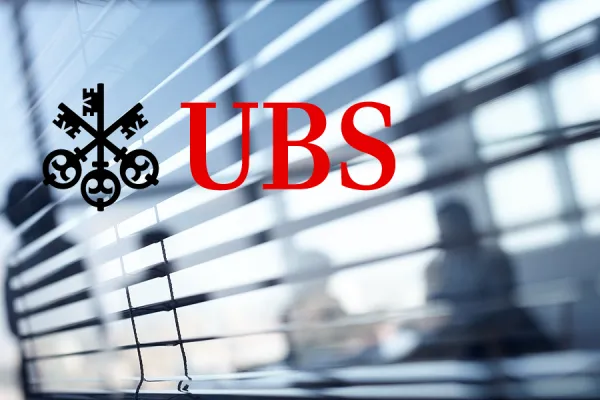South Korean companies have a credibility problem. It is one of the reasons why the country’s equity market trades so cheaply relative to developed and emerging markets, second only to Greece and Russia on a price-to-book basis. Investors have come close to giving up on the possibility that chaebol — the family-controlled conglomerates that dominate South Korean industry — will ever utilize their capital in a more shareholder-friendly fashion. But various factors suggest that this might just be about to change — and, if it does, a rerating for South Korea could be on the horizon.
South Korea’s chaebol have traditionally stockpiled cash to drive future growth in capital-intensive industries. The government and the National Pension Service (NPS), in contrast, need the cash reinvested in the economy or distributed to support higher dividend yields against the falling South Korea ten-year bond yield, which has now dropped below dividend yields for the first time this millennium. The Bank of Korea’s June 9 rate cut only makes the yield scarcity all the more acute.
The South Korean government promulgated the corporate accumulated earnings tax on January 1, 2015, to pressure companies to reduce their cash piles. But reaction to the policy — penalizing companies that do not distribute or reinvest at least 60 percent of net profits — was disappointing. One major conglomerate announced a land purchase at an egregiously inflated price rather than raise dividends or pay extra tax. If that is part of a trend, rather than an exception, the government’s plan would appear to have backfired.
Opaque corporate governance, indeed, could be one reason why investors appear to have dismissed the prospect of improving shareholder returns. Our composite of international broker estimates at Man GLG indicates a fairly negligible pickup in payout ratios over the next several years, whereas a consensus of Korean brokers collected by Seoul-based financial research firm WISEfn forecasts the payout ratio actually declining into 2018.
Investors might envision positive change in Korea’s cash return story working on two levels. For the reformists, government policies and corporate governance changes may be enough to improve distribution policies. For the critics, the chaebol will act in their self-interest. Given family succession issues and a 50 percent inheritance tax, many chaebol have little choice but to increase payout ratios.
In many respects, the situation in Japan provides a useful parallel to Korea’s problems. First, with $430 billion of assets and nearly 10 percent ownership in South Korea’s benchmark Kospi index, the NPS has underperformed the domestic equities index since 2013 and has emerged as the biggest proponent of higher payout ratios to counter falling bond yields. The same payout liability pressures compelled Japan’s Government Pension Investment Fund to become proactive about corporate governance and capital allocation.
Second, return on equity and cash flow return on investment have deteriorated to a point where most Korean companies struggle to earn their cost of capital. Like in Japan, the culprit for most companies is excess cash weighing down asset turns and capital efficiency.
Third, the problem of circular ownership within chaebol creates conflicts of interest between controlling families and minority shareholders that are similar to Japan’s cross-shareholdings problem. Last, high-profile corporate governance issues have plagued both countries, helping to depress valuations.
As Korean chaebol finally — by choice or otherwise — set about addressing their limited distribution policies, they would be wise to heed Japan’s example, particularly the emphasis on capital efficiency ratios, such as return on equity, over a simple focus on shareholder returns. Although there is much to criticize in Abenomics, Japan deserves credit for improving return on equity back to cycle highs and linking the cost of capital to the notion of corporate governance in the process.
We have long been an advocate for Japanese corporates signaling return on equity targets. Although there is room for improvement in Korea’s return on equity — at 8.2 percent, it’s barely above its cost of capital — we believe a signaling dynamic around shareholder distributions is developing in Korea, against very low consensus expectations. Boosting payout ratios would only partially address capital allocation, however. Such a strategy ignores underlying operational efficiencies necessary to sustain progressive dividend policies. We often hear analysts argue that a focus on return on equity isn’t appropriate for Korea’s cyclically geared economy. But many Japanese companies guide through the cycle, hitting return on equity targets on an earnings basis when the business cycle is recovering or strong, and managing the equity base through share buybacks and cancellations when the cycle is contracting.
The good news is that South Korea has already begun the process. The country’s Financial Services Commission introduced a draft stewardship code in 2015 and is considering a corporate governance code. Still, more needs to be done similar to Japan’s steps on this front, which include the creation of the Nikkei 400, an index focused on return on equity, as well as campaigns to educate management teams on how to decompose return on equity in an effort to move away from short-termist forecasting.
Regardless, there are encouraging signs of rising dividend payout ratios. State-owned enterprises were the first to increase their payout ratios, and several chaebol have done the same. Many chaebol are simplifying their group structure and allowing underlying units to signal higher distribution policies. Only two chaebol make up 45 percent of the Kospi index. If these two companies were to adopt progressive payouts, it is reasonable to expect a trickle-down effect for the rest of the market.
In short, South Korea faces a unique confluence of factors — an underperforming national pension fund, tax policy changes, chaebol succession issues, falling bond yields and corporate governance reform — capable of rerating it relative to emerging and developed markets. A rerating requires a more mature South Korea to emerge, one that emphasizes better capital efficiency and improved corporate governance over a growth bias. With the government and NPS recognizing this, it is now time that South Korea’s corporations — especially the family-owned headliners — align themselves as well.
Jason Mitchell is a portfolio manager at Man GLG in London.
Get more on regulation.






